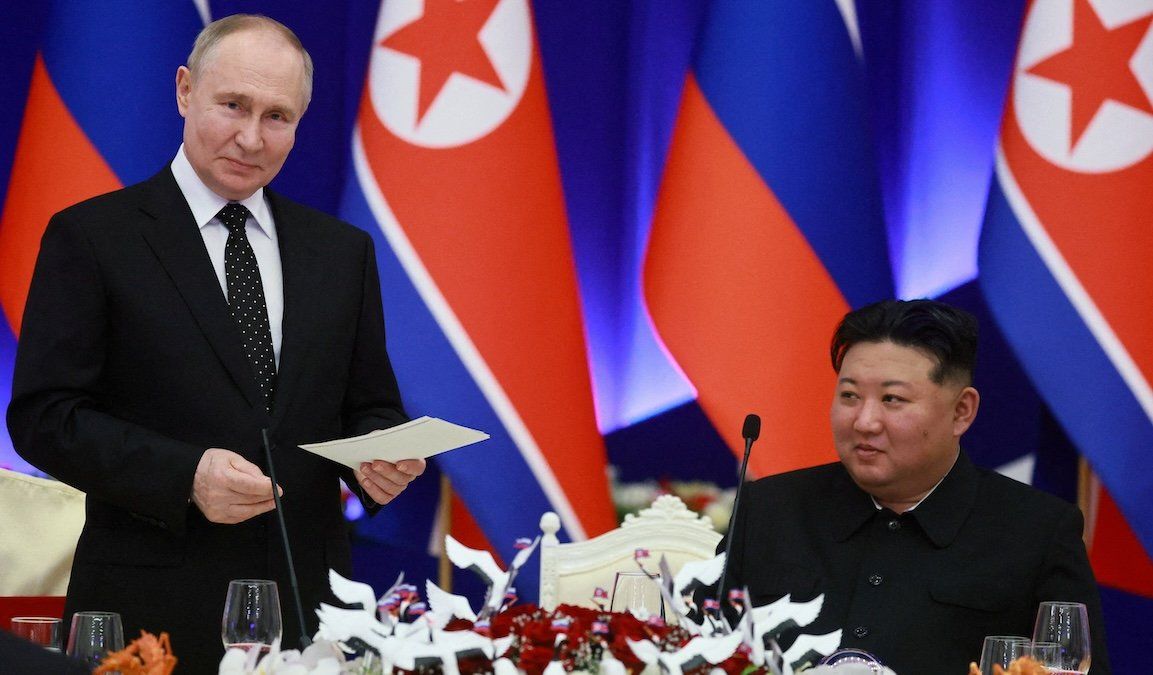Russia's President Vladimir Putin and North Korea's leader Kim Jong Un attend a state reception in Pyongyang, North Korea, in June, 2024.
North Korea's state-controlled news agency KCNA announced on Tuesday that the country has ratified a strategic partnership agreement that allows Russia to use North Korean troops to help push Ukrainians from Russia’s Kursk region.
Ukrainian, US, NATO, and South Korean officials have warned in recent days that Russia has amassed a force of about 50,000 troops to try to evict Ukrainian forces from Russia’s Kursk and Belgorod regions – and they say the force includes 10,000-12,000 North Koreans.
The presence of North Korean soldiers could help Russia push forward with its offensive in Ukraine’s East. But beyond the ability of the North Koreans to draw Ukrainian fire away from Russian forces, it’s not clear how effective they will be on the battlefield. None of them has significant combat experience, and the Ukrainians they will be deployed to attack have been fighting in their country’s Donbas region for a decade.
In addition, throughout this war, Russian forces have faced command-and-control issues. It remains to be seen how Russian commanders can effectively coordinate real-time battlefield maneuvers with large numbers of non-Russian-speaking troops.
